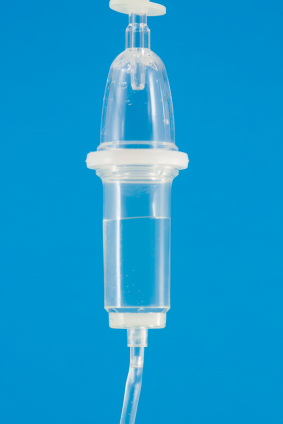New Drug Produces Rapid-Onset Antidepressant Effects
 We have previously summarized studies on ketamine, which when given intravenously can bring about rapid-onset antidepressant effects. Ketamine is a full antagonist (or a blocker) of the glutamate NMDA receptors. Another drug currently in development may work in a related way.
We have previously summarized studies on ketamine, which when given intravenously can bring about rapid-onset antidepressant effects. Ketamine is a full antagonist (or a blocker) of the glutamate NMDA receptors. Another drug currently in development may work in a related way.
At a recent scientific meeting, researcher Sheldon Preskorn showed that the compound GLYX-13, a partial agonist at the glycine binding site of the NMDA receptor (meaning it allows partial function of the glycine receptors that aid NMDA receptor function), exerts rapid antidepressant effects like the full antagonist ketamine when administered intravenously compared to placebo. GLYX-13 allows about 25% of the receptor activity of the full agonists glycine or D-serine, and thus might result in a 75% inhibition of NMDA receptor function.
GLYX-13 did not induce any psychotomimetic effects (like delusion or delirium), which are possible with the full NMDA antagonist ketamine. The effects of GLYX-13 appeared within 24 hours, lasted at least 6 days, but were gone by day 14.
Editor’s Note: Long-term effectiveness of ketamine for treatment of depression is unclear, but in addition to its potential psychotomimetic effects, it can also be abused. Whether GLYX-13 may be easier to use, longer-lasting, or safer for longer-term clinical effectiveness remains a key question.

